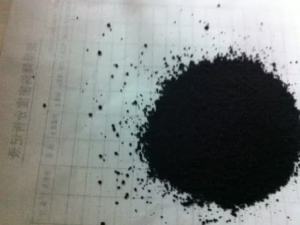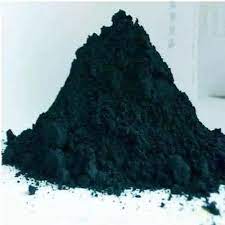Description
2300 Carbon Black, also known as acetylene black, is a type of carbon black that is produced through the decomposition of acetylene gas. It is a highly conductive material with a unique structure that makes it suitable for a variety of applications. This article will discuss the importance and applications of 2300 Carbon Black, with a focus on its electrical conductivity, chemical resistance, and thermal properties.
Electrical Conductivity
One of the most notable properties of 2300 Carbon Black is its high electrical conductivity. This is due to its structure, which consists of small, spherical particles that are closely packed together. The particles have a high surface area-to-volume ratio, which facilitates the movement of electrons and results in a low electrical resistance. This makes 2300 Carbon Black an ideal material for use in conductive plastics, which are used in a wide range of applications such as antistatic bags, ESD (electrostatic discharge) protective clothing, and conductive coatings.
Chemical Resistance
Another important property of 2300 Carbon Black is its chemical resistance. It is resistant to a wide range of chemicals, including acids, bases, and solvents. This makes it an ideal material for use in environments where exposure to harsh chemicals is a concern. For example, it is commonly used in the production of automotive parts, where it is used to protect against corrosion and improve the durability of the parts.
Thermal Properties
2300 Carbon Black also has excellent thermal properties. It has a high thermal conductivity, which allows it to dissipate heat quickly and efficiently. This makes it an ideal material for use in high-power electronic devices, such as batteries and capacitors, where heat buildup can be a concern. Additionally, it has a high melting point, which makes it resistant to thermal degradation and allows it to maintain its properties at high temperatures.
Applications
Due to its unique properties, 2300 Carbon Black has a wide range of applications. Some of the most common applications include:
- Conductive plastics: 2300 Carbon Black is commonly used to produce conductive plastics, which are used in a wide range of applications such as antistatic bags, ESD protective clothing, and conductive coatings.
- Automotive parts: It is commonly used in the production of automotive parts, where it is used to protect against corrosion and improve the durability of the parts.
- Batteries: 2300 Carbon Black is used in the production of batteries, where it is used to improve the conductivity and thermal management of the battery.
- Capacitors: It is also used in the production of capacitors, where it is used to improve the conductivity and thermal management of the capacitor.
Conclusion
2300 Carbon Black is a highly versatile material with a wide range of applications. Its high electrical conductivity, chemical resistance, and thermal properties make it an ideal material for use in a variety of industries, including automotive, electronics, and plastics. With its unique structure and properties, 2300 Carbon Black is sure to continue to be an important material in the future.
It is important to note that, even though it’s a highly useful material, it’s important to handle and dispose of it in a safe and responsible manner, as it is a form of carbon black which can have negative impact on the environment if not disposed properly. Also, it is important to take safety precautions while handling it, as it can be harmful if inhaled, ingested or comes in contact with skin.










Reviews
There are no reviews yet.